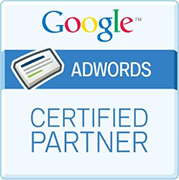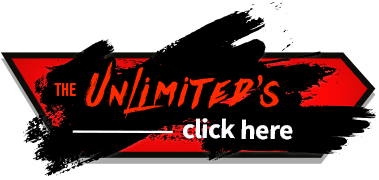In todays’ world of Digital Marketing, there’s very few Small Businesses who would receive the lion’s share of customers through word of mouth. As a result, an growing number of Small Business Owners are beginning to turn to more advanced methods of marketing to increase their online sales and drive traffic to their website. One of these strategies quickly growing in popularity is Pay Per Click (PPC), otherwise known as Google AdWords.
A paid form of advertising, PPC is an online model used to direct traffic to websites, in which the Business Owner pays each time their ad is clicked in Google. PPC has proved extremely successful for many Businesses in increasing sales and yielding substantial Return on Investment.
There are however, many Small Business Owners who are still hesitant to take the plunge when it comes to embracing PPC, as there are certain monetary risks associated with the strategy. This makes it absolutely vital to maximize the success of your PPC Campaign!
To make sure you don’t get stuck with an underwhelming PPC strategy, we’ve compiled our top 6 tips on maximising your Campaign to give you the MOST effective paid advertising channel possible.

1. Keyword Match Types
1. Keyword Match Types
Given that Google now processes more than 3.5 billion searches per day, it may surprise you to know that 5 million of these are queries which have never been seen by Google before. This makes choosing your keyword Match Type absolutely vital in the success of your Campaign, and could see you from wasting your budget on irrelevant search queries.
There are a few different Match Types you should familiarise yourself with:
- Broad Match: will see a keyword trigger your ad whenever someone searches for that specific phrase, any similar phrases, singular or plural forms, misspellings, synonyms, related searches, and other relevant variations.
- Exact Match: Will see your ad appearing when someone types in the exact word or phrase you’re bidding on. No variations, no alterations.
- Modified Broad Match: You can achieve this Match Type by placing a (+) sign in front of one or more words in a typical Broad Match Keyword. The words that are preceded by a (+) sign must appear in the user’s keyword phrase exactly or as a close variation. The words not following a (+) sign will trigger ads on more significant query variations.
This Match Type was recently created by Google to allow a more targeted approach, without being too restrictive.
While Broad Match may see your website receiving a rapid growth in Click Through Rates, chances are that a lot of these people visiting your site won’t actually be interested in purchasing your products or services. This can be a costly mistake, as you’re paying for each of these clicks, without receiving anything in return. Exact Match, on the other hand, can be far too restrictive, possibly seeing you miss out on a large portion of more specific traffic.
The answer? Utilizing the Modified Broad Match Type more widely across your campaigns will capture your unique traffic, while still using exact where appropriate. This will likely see you receive traffic from people using lesser-searched key phrases, but who have a higher intent to buy. Driving qualified, high-intent traffic will improve the Quality Score of your generic keywords, which over time will maximize the strength of your Campaign.

2. Measure and Track
2. Measure and Track
This is something which is often a HUGE oversight, but can make a massive difference in the success of your AdWords Campaign. Measuring and tracking your conversions is absolutely crucial for anyone wanting to optimizing and strengthen their strategy.
Unfortunately, PPC isn’t a set-it-and-forget marketing strategy. Tracking your Click Through Rates, conversions, Cost Per Click, Quality Score and impressions are all important factors in deciding what your next best move is.
All of this can be quite complicated and time-consuming for the typically busy Small Business Owner, which is why it can pay in the long run to have experts on hand helping to measure these nitty-gritties for you. They’ll ensure your campaign is on track and make any necessary changes that will boost your campaign.

3. Ad Scheduling
3. Ad Scheduling
There’s no point running your PPC Campaigns when a large portion of your target audience are sleeping and not even online. This is quite a common oversight by many, though is an issue that can, thankfully, be quite easily rectified.
Many people will take the ‘more the better’ approach when it comes to their PPC Campaign, seeing them running their ads from dawn till dusk. Unfortunately, this approach can see you wasting your precious budget at 2:30 in the morning, when it could be better put to use in your top converting hours and days.
You can use gathered data to plot your conversion rates by the time of day and days of the week, giving you a better idea of the most effective times to advertise for your Business. Schedule your ads to primarily run during key trading hours and use the bid adjustment tool to increase the ad position at peak conversion times.

4. Use Geo-Targeting
4. Use Geo-Targeting
This strategy is particularly helpful for those Small Business Owners with a bricks and mortar shop, as you’ll be able to target people close to your physical location.
Geo-Targeting, or local PPC, is a feature that lets you target your ads to only appear to customers in a certain location, or set of locations, that are specified by you. This is a highly effective strategy, given that people who are searching on their mobiles are usually out, about and ready to buy! This means that Geo-Targeting gives you the perfect opportunity to target potential customers with your ads to drive them to your store.

5. Negative Keywords
5. Negative Keywords
Negative keywords are an often neglected in the set-up of people’s AdWords Campaign, but by utilizing this PPC tool you’ll likely save a large portion of your budget from going to waste on searches unrelated to your business.
Negative Keywords are words that you can select that will never appear alongside your ad. For example, if you’re a florist in Brooklyn, some effective phrases might be “florist Brooklyn”, “Brooklyn flower shops”, Brooklyn flower delivery”. A negative keyword you might want to add to your campaign could be “jobs”. This ensures that if someone were to type in “florist jobs”, your website would not appear to this searcher.
In the long-run, using this tactic is an exceptional way to increase your ROI and stop seeing you waste your budget on useless clicks.

6. Ensure your Ad Copy is Concise, Creative and Consistent
6. Ensure your Ad Copy is Concise, Creative and Consistent
Having great ad text and content isn’t just a good idea for an effective PPC Campaign: it’s a necessity. If your ads are not compelling, or worse, aren’t even relevant to your landing page, then you’re likely missing a huge opportunity to turn your clicks into paying customers.
When creating great, enticing ad copy there are a few things to bear in mind. Make sure your content to is always sharp, clear and concise. If your wording is too convoluted, readers won’t even waste their time to read your ad – they’ll simply move on.
Include strong and obvious Call to Actions to direct customers and tweak your headings to make them as eye-catching and appealing as possible. It’s also vital to make the content on your landing page relevant to your ad.
For example, if you own a women’s clothing shop and your PPC ad is offering 20% off all eveningwear, make sure that when customers click on the ad they are directed to the eveningwear page of your site. If you take them to the homepage or the swimsuit page, you’re going to be making it that much harder for your customers to achieve their desired result. Namely, accessing your eveningwear at 20% off.
PPC is an exceptionally powerful Digital Marketing Tool, but it can also take a lot of time and knowledge to get it right. And, unfortunately, the consequences of setting up a poor Campaign can indeed be costly. If you’re interested in dipping your toe into the world of Google AdWords, it will probably be helpful to enlist the assistance of PPC Professionals to help establish and effective Campaign for your Business. They will be able to undertake all the necessary monitoring and tweaking to ensure it’s performing at its very best!








